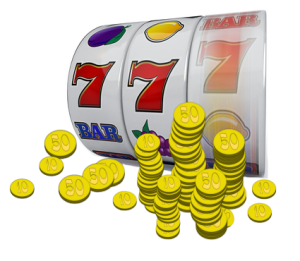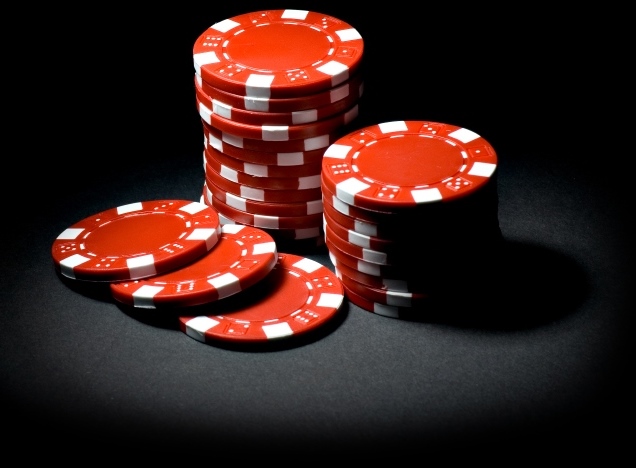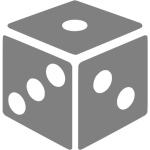- The Reviews
- UNIBET Review 2026
- MANSION Review 2026
- BETSAFE Review 2026
- BWIN Review 2026
- BETSSON Review 2026
- JETBULL Review 2026
- WILLIAM HILL Review 2026
- BET-AT-HOME Review 2026
- ZET Casino Review 2026
- CASINO.com Review 2026
- Mr GREEN Review 2026
- 888 Review 2026
- VEGAS CASINO ONLINE Review 2026
- LAS-VEGAS USA Casino Review 2026
- SUN PALACE Casino Review 2026
- ROYAL ACE Casino Review 2026
- PLANET 7 Casino Review 2026
- CLUB WORLD Casino Review 2026
- SILVER OAK Casino Review 2026
- Free Casino Games
US
- Best Online Casino Games Guide
- Choose Your Best Online Casino
- The Best Casino Games
- Online Card Games
- Best Online Machine Games
- Table Games
- Online Slots
- Complete Modern Online Blackjack Guide
- Free Blackjack Basic Strategy
- Simplified Blackjack Playing Strategy
- How to Play Blackjack Online Like Pros
- Advanced Blackjack Rules and Strategy
- Step-by-Step Blackjack Playing Procedures
- Blackjack Playing Options Guide
- Master Blackjack Card Counting
- Modern Blackjack Card Counters Challenge
- Which is the Best Blackjack Betting System?
- Nine-Count Blackjack Strategy Review
- Blackjack Myths and Errors
- Online Roulette
- Sportsbook
- Online Poker
- Online Video Poker
- Online Scratch Cards
- Online Bingo
- Online Baccarat
- Online Craps
- Asian Casino Games
- Online Keno
- Online Sic Bo
- Casino Bonuses
- Online Casino Reviews
- UNIBET Review, Casino, Sportsbook, Poker & Live Dealers
- BETSAFE Review, Casino, Poker, Live Dealers & Sportsbook
- MANSION Review, Casino, Sportsbook & Live Dealers
- BWIN Review, Sportsbook, Casino, Poker & Live Dealers
- BETSSON Review, Sportsbook, Casino, Live Dealers, Poker
- JETBULL Review -Casino, Sportsbook, Live Dealers
- BET_AT_HOME Review, Sportsbook, Casino, Poker, Live Dealers
- WILLIAM HILL Review -Casino, Sportsbook, Live Dealers, Poker
- ZET Casino Review
- Mr GREEN Review -Casino, Sportsbook & Live Dealers
- CASINO.com Review -Online Casino & Live Dealers
- Las-Vegas USA Casino Review
- Sun Palace Casino Review
- Royal Ace Casino Review
- Planet 7 Casino Review
- Club World Casino Review
- Vegas Casino Online Review
- Silver Oak Casino Review
- Free Casino Games
Online Slot Machines FAQ
A number of questions or beliefs about slot machines come up over and over again. The following is not a literal list of the questions people ask, but a list of the sorts of questions people ask:
- Bonus Amount: $3,000 up to $10,000. The best daily bonuses on the internet.
- Games: An incredible number of slots, table games, and video pokers, including HTML5 games.
- Strong security protocols of 128-bit encryption
- Audited and guaranteed fair by TST
- Website: https://www.lasvegasusa.eu/casino/
- Established: 1999
- Software: Real Time Gaming (RTG)
- US and Canadians players supported
- Platforms Supported: Windows, Mac, iPhone, iPad, & Android.
- Type of Casino: Online & Instant or download.
- Free Slots Games: Yes
- Customer Support: 24/7 live chat support, as well as a toll-free phone number: +506-283-0061, and e-mail support
Write your review of Las-Vegas USA Casino
- Website: http://www.royalacecasino.eu
- Casino Type: download client, instant play, and mobile
- Software: Real Time Gaming (RTG)
- Owner: Emoney Processing Casinos LTD
- Established: 2009
- Casino Promotion: 100% Match Deposit Bonus up to $4,000, Daily and Weekly Bonuses
- Coupon Code: CASINO400
- Currencies: US$, Euros, Yen, Pounds, Bitcoin
- Mobile: both desktop and mobile compatibility
- VIP Program: 5 levels Available
- Support: World Class Support, 24/7 live chat & Toll-free phone number for USA and Canada
- Security: 128-bit SSL encryption
- Certified by: CDS (Central Disputes System)
- Languages: English
- License: Costa Rica
Write your review of Royal Ace Casino
- Bonus: 400% up to $10,000.
- Website: https://www.sunpalacecasino.eu/
- Software: Real Time Gaming (RTG)
- Deposit Methods: ClickandBuy, MasterCard, Money Order, Neteller, Visa Electron, instaDebit, Visa, MST Gift Card, Skrill, Bitcoin
- Withdrawal Methods: ACH, Cheque, Money Order, Neteller, Skrill
- Withdrawal Times: EWallets: 2-5 days, Credit / Debit Cards: 10-12 days, Bank Transfers: 7-12 days, Cheques: 21-28 days
- Pending Time: 3-7 days
- Withdrawal Limit: $5,000 per week
- Games: Incredible number of games of all types
- support: 24/7 through live chat, phone, or e-mail
- Support Response Time: 24 hours via email or Instant using Live Chat.
- Encryption: 128-bit SSL
- Audited and found fair by TST
- Languages: English.
- Progressive Jackpots: up to Million-Dollar.
- Restricted Countries: Bosnia, Costa Rica, Malaysia, Morocco, Netherlands, Russia.
Write a review of Sun Palace Casino
- Bonus: 320% Bonus + 45 Free Spins
- Casino Website: https://www.silveroakcasino.com/
- Casino Promotion: 320% Match Deposit Bonus up to $10,000 in 10 first deposits, up to $100 No Deposit Bonus, Weekly and Monthly Cashback, and much more.
- Casino Type: download client, instant play, mobile, and live dealers
- Software: Real Time Gaming (RTG)
- Live Casino: Available Live Dealers Casino
- Owner: Emoney Processing Casinos LTD
- Established: 2009
- Currencies: US$, Euros, Yen, Pounds, Bitcoin
- Mobile: both desktop and mobile compatibility
- VIP Program: 5 levels Available
- Support: World Class Support, 24/7 live chat & Toll-free phone number for USA and Canada
- Security: 128-bit SSL encryption
- Certified by: CDS (Central Disputes System)
- Languages: English
- License: Costa Rica
Write your review of Silver Oak Casino
- Bonus: First Deposit 350% Bonus + 25 Free Spins
- Website: https://www.planet7casino.com/
- Casino Type: download client, instant play, mobile, and live dealers
- Software: Real Time Gaming (RTG)
- Live Casino: Available Live Dealers Casino
- Owner: Emoney Processing Casinos LTD
- Established: 2008
- Casino Promotion: 200% Match Deposit Bonus up to $4,000, and much more.
- Currencies: US$, Euros, Yen, British Pounds, Bitcoin
- Mobile: both desktop and mobile compatibility
- VIP Program: Available
- Support: World Class Support, 24/7 live chat & Toll-free phone number for USA and Canada
- Security: 256-bit SSL encryption
- Certified by: CDS (Central Disputes System)
- Languages: English
- License: Costa Rica, Cyprus, the United Kingdom, and the Netherlands.
Write a review of Planet 7 Casino
- Bonus: Get 300% Match up to $3000 FREE Welcome Bonus
- Website: https://www.clubworldcasinos.com
- Software: Real Time Gaming (RTG)
- Mobile: Android, iPhone, iPad
- Casino Type: Download, Instant Play, Mobile
- Currency: US dollars
- Language: English
- License: Curacao
- Owner: Club World Casinos Group Casinos
- Established: 2005
- Audit: RTP Not publicly audited
- Currency: US dollars
Write a review of Club World Casino
- Bonus: Get 300% Match up to $3000 FREE Welcome Bonus
- Website: https://vegascasinoonline.eu/
- Established: 1999
- Software: Real Time Gaming (RTG)
- Currencies: US$
- US and Canadians players: supported
- Bonus Amount: up to $11,000 Match Bonus
- Platforms Supported: Windows, Mac, iPhone, iPad, & Android.
- Type of Casino: Download & Online Instant Play.
- Free Slots Games: Yes
- Owner: Main Street Vegas Group Casinos
- License: Costa Rica
- US Customer Support: (877) 691-5124
- Canada Customer Support: (888) 387-6717
- Email Address: [email protected]
- Live Chat: Yes
- Response Time: 24 hours via email or Instant using Live Chat.
- Languages: English.
- Progressive Jackpots: up to 1 Million-Dollar.
Write a review of Vegas Casino Online
Are slot machines addictive?
A large number of cases of Slots Machines problem gambling from around the world suggests that slots are among the most addictive forms of gambling. There are shreds of evidence that Video Slots do indeed account for most problem gambling in Prince Edward Island.
In Ontario, Rush, Moxam Shaw, and there are reports that Electronic Gaming Machines (EGM) account for 37.7% of the treatment population, making slots the number one reason for seeking treatment. It was found that elevated levels of problems among Slots players.
These numbers suggest that slot machines are indeed more addictive than other forms of gambling. Some people have even called EGMs the “crack cocaine of gambling”, however, there are also counterarguments).
addictiveness of slots is directly related to their structural characteristics, such as high event frequency (the speed with which you can play), frequent wins, lights, color and sounds, game varieties, bonuses, the use of bill acceptors, and the illusion of skill.
Other situational characteristics that might be important are advertising, availability, low stakes per bet, the presence of nearby cash machines or online machines, the type of establishment (raceway, casino, bar), and the presence of alcohol at the location.
Some research has been conducted to explore the addictive properties of the machines, but there is no clear evidence about any specific property that accounts for the arrival in treatment centers of so many slots players.
Taking into account the greater market penetration of slots, there is no evidence that they are any more addictive than other forms of gambling.
According to their assessment, the high prevalence rates of machine problem gamblers is a simple outgrowth of the fact that slots are the the most widely available form of high-intensity gambling.
According to their data, problem players make up a smaller portion of slots players than racetrack bettors. Electronic Gaming Machines are more widely available than table games or racetracks because they are so much cheaper to run. In addition, the low stakes per bet likely contribute greatly to their market penetration.
Taking the heat off slot machine per se by characterizing slots play as following the same distribution as other products.
However, unlike many other products, the most loyal slots players can end up with massive debt.
As stated above, slot machines account for a large proportion of people in treatment for gambling problems market penetration based argument inadvertently suggests that, in order to reduce problem gambling, the widespread availability and marketing of the machines should be curtailed. However, more research is needed to understand the link between slot machines and problems.
How can a machine be random?
Technically, a machine cannot be random. Slot machines, in fact, are pseudorandom. As stated above, RNGs use a very complex algorithm.
The sequence of numbers a Random Number Generator (RNG) produces is not truly random and is erratic, but predictable.
However, uncertainty is added by the seed value, so that a player can never know what part of the cycle the computer is at. This is further enhanced by the continuously running nature of the RNG, which makes the outcome of an EGM completely unpredictable.
Do slots go through a cycle of numbers?
Many people believe that slot machines run in cycles. The answer is yes and no. There are four interesting answers to this question.
First, one of the curious aspects of random events is that they often do seem to be evenly spaced. This is in part due to the very nature of probability. If something has a probability of 5%, it will on average occur 5% of the time. But this is simply an average.
It could occur on the very next spin of the reels, or not until after 500 spins. You never know when it will occur. The human ability to see a attern when none is present is well known. Consider how easy it is to find faces in clouds. It shows the financial outcome of a number of slot bets.
The wins (sudden upward jumps) seem to be evenly spaced across, including the last rather large jump.
The wins are not in fact evenly spaced but are randomly spaced. But the mind has a bias for seeing patterns, so it sees more regularity than is actually there. The belief in cycles is not unique to Slot Machines. Lottery and roulette players often track the numbers, looking for patterns or cycles.
Second, this myth might to some extent be derived from actual computer knowledge. As stated above, the inherent limitation of a machine is that it cannot create true uncertainty, only complexity.
The random number generator (RNG) does run in cycles — very long cycles. However, as we explained above, the cycle is broken up by the continuously running nature of the RNG, which means that a fraction of a second difference in the timing of the button press will result in a different outcome.
Therefore, the player cannot track the cycle.
With a continuously running RNG, a modulus of only seven numbers might be sufficient to produce a random experience for the player, but, to be on the safe side, slots manufacturers base their RNGs on huge modulus numbers.
Third, at one time, illegal or grey-market EGMs might have operated on a cycle basis, which gave rise to this belief, which has since been carried over to modern, regulated, EGMs that work differently.
Unregulated grey-market machines were not tested to ensure that they met the standards of randomness currently imposed on legal machines in North America.
Fourth, slots in the United Kingdom do indeed run through a prize sequence over a relatively short time frame (see also the discussion on adaptive logic fruit machines in U.S. patent #6,666,765, http://www.uspto.gov/patft/index.html).
Perhaps this belief in-game cycles in North America has been imported from the United Kingdom. Given these four possible sources of bias, the persistence of this belief is not surprising.
Does the number of pictures equal the odds?
On reel slots, in general, the answer is no.
Working out the odds from the number of pictures is difficult for a number of reasons.
First, on many reel slots, you also need to count the number of blanks between the symbols.
Second, the number of winning and nonwinning symbols is not the same on all the reels. There is, in fact, no legal or practical reason that the symbols would have to be the same on all the reels.
Third, as stated above on reel slots, the pictures are weighted so that some come up more often than others. This is accomplished through a process called mapping determined by a computer inside the slot machine. This weighting may sound unfair, but currently, there is, in fact, no legal or practical reason that the pictures need to be equally likely.
Note that the legality is being challenged in a U.S. court right now. The weighting further reduces the player’s ability to crack the code of the RNG.
Unequal probabilities do occur in other gambling games (e.g., instant lotteries, the Big Wheel, horse race bets, craps, baccarat). In each game, some events occur more often than other events.
However, unlike with table games, the relative probabilities of different events are completely hidden, and, unlike with instant lotteries, there are no laws, other than those in Victoria, Australia, requiring the slot manufacturer to divulge the true probabilities of slot events.
How can weighted reels be random?
With two dice, seven comes up six times out of every 36 rolls, while twelve comes up only one time in 36 — this is still random.
Each of these 36 chances is equally likely, but if you bet on “any seven,” you will win more often than if you bet on twelve. This is essentially the same as having more virtual stops mapped to pictures of bars than to pictures of sevens on the actual reel.
With the game of craps, the casino does not post the true odds of rolling twelve or seven, but, with a little knowledge of math, anyone can work out the true odds.
As stated above, each stop on the slot machine’s virtual reel is equally likely, but more of these virtual reel stops are mapped onto nonpaying symbols (e.g., blanks) or low-paying symbols (e.g., bars) than onto high-paying symbols (e.g., sevens and cherries).
Thus, through virtual reel mapping, the outcomes are weighted in favor of low-paying outcomes. Virtual reel weights allow the casino to offer larger prizes to the player.
The downside of virtual reels is that it is virtually impossible for players to figure out their chances of winning one of the larger prizes on one of these machines. To figure out the odds, they would need to play on a particular machine for several hours and record the frequency of every symbol on every reel.
Virtual reel weights only apply to three-reel slots, not video slots.
Virtual reels are not needed on video slots because the programmer can obtain the odds needed to offer large prizes simply by making the strip of pictures longer.
How can you have a payout of only 90% if the machine is random?
Payout and game randomness are two separate issues.
Randomness refers to how the symbols are selected — the stops are selected using the RNG (Random Number Generator).
Payout is how much you get paid for a randomly displayed combination. Players lose in the long run because the amount the slot machine pays out for wins is insufficient to make up for the times’ players lose. As an illustration, suppose you were running a dice game in which you asked a player to bet $1 on any specific number (one to six).
The probability of rolling a specific number on a die is one in six (1/6).
Thus, the player wins one out of every six rolls on average (a hit rate of 16.6%), but he or she might win 8 times in a row or lose 60 times in a row.
Suppose you paid the player $3 for a win. On average, the customer is winning back $3 for every six rolls, which means losing $6 for every $3 he or she wins. This would be a payback percentage of 50% of what he or she bet (payback = $3/$6 = 50%).
After a few games, the player realizes that it’s a bad deal and is about to walk away, so you now offer $7 for a win.
That would be a payback of $7 for every $6 bet or 116.7%.
You start to go broke, but you think the player will walk away if you cut the payback.
In desperation, you change to an eight-sided die, so now the hit rate is 1/8 or 12.5% and the payback is $7 for every $8 bet (a payback of 87.5%).
At this point, the player might no longer notice that he or she is losing money because the wins most often seem to make up for the losses. The point is that the only difference between these three games is the amount the player is getting back relative to the chance of a win.
In each case, the game is random. However, with $3 won for every $6 bet or $7 won for every $8 bet, the house is making money, but, with $7 won for every $6 bet, the player is making money.
Of course, no casino would offer a game with a payback of 116.7%, but this example illustrates how it is the amount of the win relative to the probability of the win that determines the payback percentage.
Payback has nothing to do with randomness per se.
Slot machines have many different bets and many different ways of winning, so working out the payback percentage is much more complicated, but the same basic principle applies. The payout table is not based on any actual slot machine but is designed to illustrate the nature of slots payout tables.
You multiply the probability of a winning symbol’s combination by the prize for that symbol. You do this for each line and then find the total. The last column shows the contribution of each winning symbol to the total prize.
Symbol | Chance | Payback | Payback % |
Three treasure chests | 1/171,468 | 5000 | 2.9 |
Three sevens | 1/18,224 | 500 | 2.7 |
Three double bars | 1/1000 | 100 | 10 |
Three cherries | 1/579 | 40 | 6.7 |
Three bars | 1/13 | 4 | 29.6 |
One cherry | 1/8 | 3 | 36.0 |
Hit frequency | 1/5.1 or 19.7% | Total payback | 88.2% |
Notice that the jackpot prize (three treasure chests) has a payback percentage of only 2.9% to the payback. If this were the only winning combination, the slot machines would have a truly awful payback, but the total payback is computed by adding up each of the prizes, which totals to 88.2%.
The third column indicates the chance of each of these combinations occurring. When these
chances are added up, they equal p =.197 or 19.7%. This is called the hit rate. Given this set of probabilities, the player will get positive feedback nearly 20% of the time. This table may not be particularly realistic, but it does illustrate in a general way how payback works.
I started with $120, but now I only have $20 left. Where is my 90% payback?
Often clients will complain that they have in fact lost a lot more than 90%. They might start with $100, lose most of it, and never win it back. They may even have played until it was all gone. To answer this question we first have to consider what payback does not mean.
- A 90% payback does not mean you win 90% of the time.
- It does not mean you win back 90% of what you have lost.
- It does not mean that you are ever due to winning.
- It does not mean that you get back 90% of what you started with.
- It means that on average you can expect to LOSE 10% of the money you bet, each time you bet.
The reason people lose all their money on a slot is that they keep playing until it is gone.
The loss is due to the “churn”, or the reinvestment of what they won back into the game. Thus, they are not losing 10% of what they initially fed into the machine, they are losing 10%, on average, of each and every bet.
In the process of losing $100 on a 25-cent machine, a player will actually have bet around $1000. Ten percent of $1000 equals $100, so a loss of $100 is a 90% payback.
In short, it’s 90% of the $1000 bet, not 90% of the $120 started with. You can test this using a player’s card.
Since many casinos give you one point per $10 bet, if you play until you lost $100 on the same slot machine, you will earn 100 points (good for a rebate of about $5 at some casinos), indicating that you bet $1000. Results will vary depending on the casino, the player club conditions, the payback percentage of the machine, and random chance.
People often get confused about the terms used to describe the house edge. House edge, payback percentage, and expected return are different ways of expressing the same concept. House edge is the percentage of money that you expect to lose on each bet. The expected return is the same as the house edge, with a negative sign in front of it.
Payback is the percentage of the money you expect to get back from a bet. The relationship between the house edge and the payback percentage is pretty simple.
House edge + Payback percentage = 100%
100% – House edge = Payback percentage
100% – Payback percentage = House edge
For a typical slot machine, the payback percentage might be 90%, and thus the house edge is 10%. The expected return is –10%.
One of the puzzles about gambling is why people continue to play a game when they are playing for a payback of less than their bet.
Part of the reason is that the volatility of the game (variation from spin to spin) is very large, making it very difficult to measure the house edge. With slots, most of the time you lose, sometimes you win a little, and occasionally you win a lot. Volatility is a natural result of the variable prize structure, but it makes it hard to determine one’s actual rate of loss.
The most volatile and worst payback comes with lotteries (e.g., 50%). They are also the most successful games in terms of market penetration (62% of the population in Ontario).
Volatility and payback percentages tend to be inversely related — even-money games such as craps have the lowest volatility (you bet $5; if you win you get back $10) but have the highest payback percent (98.6% for pass line bet in craps — without free odds).
The more volatile the game the harder it is to determine your rate of loss.
For slots, the volatility does a very good job of obscuring the payback percentage. Even with table games, more volatile games (e.g., hardways in craps, Caribbean stud poker) have a poorer payback percentage than even-money bets.
The casino needs a higher house edge on volatile games to offset the greater financial risk of offering large prizes.
Is there any skill involved in slot play?
In general, no skill is possible on slot machines. However, there is some element of skill involved in video poker play, and it would be a mistake to collapse video poker and slots into the same category of games.
Video poker is a game in which a careful-player can increase the payback percentage but in most cases even with optimal play the player is still losing money over the long term. Because surveys rarely distinguish between different types of electronic games, such as slots and video poker, it is unknown if the partial skill in video poker makes it more addictive.
It is most likely that the two games appeal to different people and are addictive in different ways.
There is also an element of skill involved in the search for particularly large progressives or bonus points.
A player could theoretically win in the long term by looking for machines with large progressive jackpots or lots of bonus points — the odds are the same but the payoff percentage is better when the prize is large.
The problems that players face in doing this are as follows:
- They do not know when the jackpot is large enough to compensate for its incredibly low probability.
- An “overdue” jackpot of $50 thousand might still have a probability of 1 in 200 thousand or even worse.
The odds of the jackpot do not change. For the mathematicians in the audience, recall that the payback percentage is based on all prizes, not just the grand prize, so, even though the prize is still less than the odds against winning, the payback percentage might be in the player’s favor.
But, to guarantee winning the grand prize, players will likely have to bet more than they will win.
Once the prize gets large, the payback percentage of the machine might be more than 100%, but unless they actually win that bonus jackpot before someone else does, they might lose an incredible amount of money.
The fact is that the risk is too great, and, as such, even hunting for bonuses and progressive jackpots on slots should be treated as a game of pure chance, not skill.
Some countries and some states in the U.S. have gambling laws encouraging or requiring skill-like elements in slot games. Some machines have a stop button that supposedly forces the wheel to stop giving layers the illusion that they can alter the outcome of the spin.
Other skill features might include a hold button, a nudge button, or even a clue button.
Most of these are pseudo-skills that provide no real opportunity for skilled play or long-term wins.
Because of bonuses and progressive jackpots, the payback percentage will vary, but in general, there is simply no way to beat a slot machine except by pure random chance.
Casino Games Blog 2026
The Bitcoin Casino Guide

Was This Helpful?
Recommend us on Facebook









